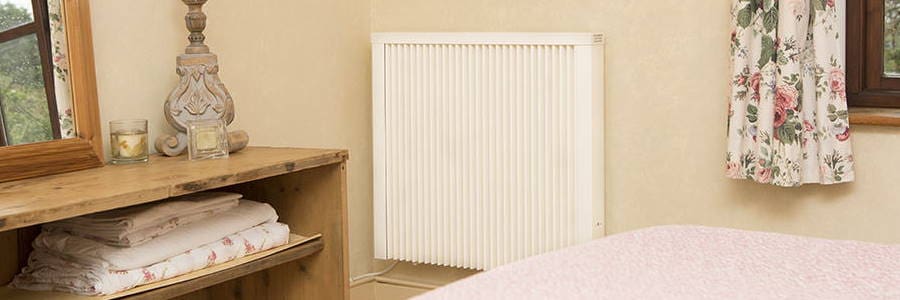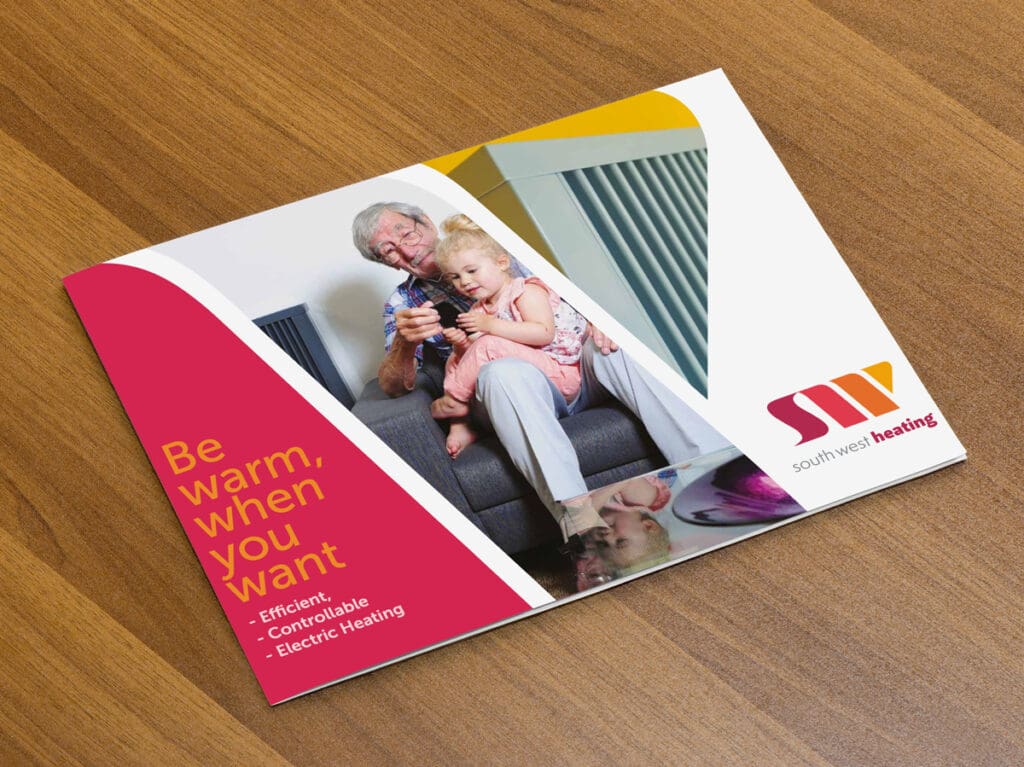It is estimated that 40% of UK carbon emissions come from households, and a large part of that is our heating. The power that we use to heat our homes is contributing to climate change in a big way, which is why it’s so important that we find more eco-friendly home heating systems.
This simple guide will help you keep your home warm this winter while also living a more eco-friendly lifestyle.
Smart Heating Controls
Smart heating controls are an effective way to reduce energy usage in your existing heating systems. They have two main functions.
Firstly, smart heating controls are programmable so you can allocate a certain number of hours for your heating system to be on each day. For example, you might want your heating to come on 30 minutes before you get up in the morning and turn off 30 minutes after you have gone to bed at night. You can choose exactly when your heating system is on and it will only come on when you need it.
Secondly, they can save money by making sure that your heating system runs for the minimum amount of time required to heat your home, rather than constantly running at maximum capacity throughout the day. These controls are an easy way of achieving sustainable living without sacrificing comfort in your home.
Improved Insulation
Insulating your home is one of the most effective ways to reduce your energy usage and cut carbon emissions. It’s important to ensure that all spaces in your house are insulated, including windows which should be double glazed. This will drastically cut the amount of energy required to heat the home and keep it warm for longer. Although it is an initial investment, upgrading insulation will make your home more eco-friendly and save you a lot of money in the long term.

Heat Pumps
A heat pump is a heating and cooling system that uses electricity to move heat from one place to another. It works by drawing in warmth from outside the house, which it then pumps through your home. Heat pumps are one of the best eco-friendly home heating systems available right now.
There are 4 different types of heat pumps available; ground source heat pump, air-air heat pump, air source heat pump, and hybrid heat pump.
A ground source heat pump uses water to extract heat from the ground or air. An air source heat pump functions in much the same way as a ground source heat pump, but rather than using water to draw heat from the environment it uses refrigerant gas. An air-air heat pump pumps hot air into the house rather than hot water. Finally, a hybrid heat pump is a mixture of multiple types of heat pumps.
Each pump has its own benefits and the right option for you will depend on your individual needs. But whichever type of system you choose, heat pumps are a great environmentally friendly alternative to traditional heating systems.
Modern Electric Radiators
Modern electric radiators can be a good option for heating your home but not all electric radiators are equal. Look for radiators with:
- The largest surface area possible for their dimensions. This is because the larger the surface area, the faster they will distribute heat. Some electric radiators have flat panels rather than fluting, which means a much smaller area to distribute heat.
- Non porus ceramic clay core. Ensuring the core isn’t porus can help protect against any damage from any damp in the air.
- Fluting. As well as increasing the surface area, fluting assists the distribution of warm air around the room via convection. This can help heat a room evenly, preventing cold spots.
- Input and output equality. Radiator manufacturers should be able to tell you what the input and output of a radiator model is. The most efficient ones turn all energy they consume into heat, others can expel energy without turning it into usable heat.
You can use electric radiators in conjunction with solar panels, wind turbines or other green methods of generating electricity. If this isn’t an option, you can switch to a green energy provider to help reduce emissions.

Modern Electric Storage Heaters
Modern electric storage heaters are designed to store heat by downloading electricity from the national grid at night, when power stations are still running yet there is less demand for electricity, heating up and releasing the heat when needed.
Installing storage heaters is relatively easy, but it is worth noting that they won’t necessarily reduce your emissions right away. They also do not heat the water, they simply store the heat and distribute it, so you may need an additional water heating solution. However, in the future, as the electric grid draws more power from sustainable sources, modern storage heaters will be an increasingly viable option for eco-friendly heating.
Electric Fan Heaters
Electric fan heaters are simple heating systems that are designed to heat a space by blowing hot air around. These heaters draw on electricity, heating up and distributing air via a fan installed in the radiator.
These heaters can be expensive to run and not particularly effective at heating a space evenly. It’s a bit like heating a room with a large, quiet hair dryer. They can be useful if they’re only needed on occasion but aren’t suitable as a main heating option.
Infrared Heaters
Infrared heaters use thermal radiation, which becomes heat when it comes into contact with a solid object.
You can choose from different levels of intensity. They produce fewer emissions than standard radiators, but they are still less effective than heat pumps. It’s also important to note that they are very new, so there is not a huge amount of data about their effectiveness in practice.

Choosing The Right Eco-Friendly Heating System For Your Home
As we increase our focus on sustainability, the number of eco-friendly home heating systems is growing. However, some of them are more focused on reducing energy bills rather than managing your impact on the environment. When deciding how best to heat your home, it’s important to consider your own specific situation.
That said, heat pumps are one of the best eco-friendly home heating systems out there. They can help you keep your home warm while also cutting your carbon emissions in a big way. If heat pumps are not an option, modern electric radiators or storage heaters can be a good alternative. Adding more insulation to your home is always a good option, though, whatever heating option you decide to go for.



